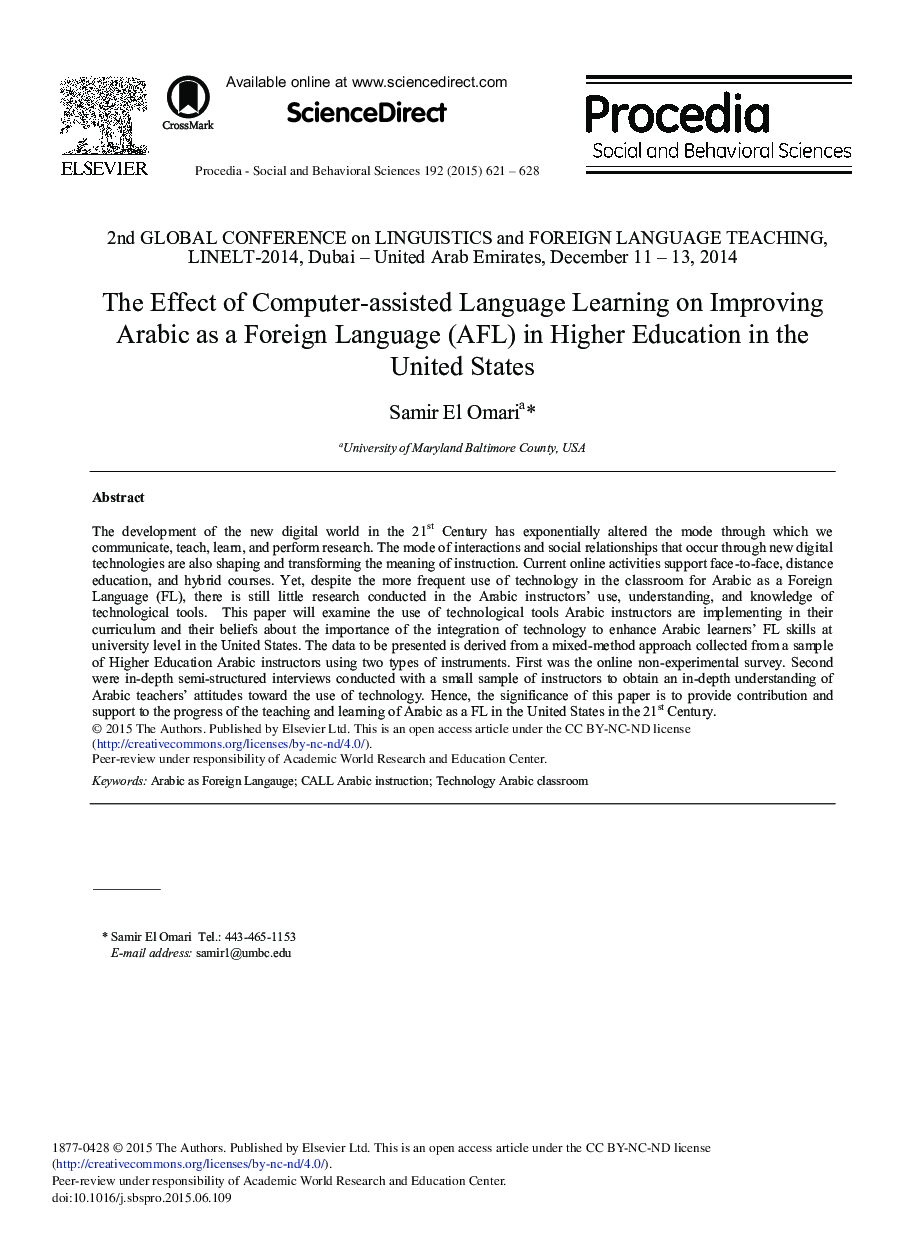| کد مقاله | کد نشریه | سال انتشار | مقاله انگلیسی | نسخه تمام متن |
|---|---|---|---|---|
| 1109303 | 1488367 | 2015 | 8 صفحه PDF | دانلود رایگان |

The development of the new digital world in the 21st Century has exponentially altered the mode through which we communicate, teach, learn, and perform research. The mode of interactions and social relationships that occur through new digital technologies are also shaping and transforming the meaning of instruction. Current online activities support face-to-face, distance education, and hybrid courses. Yet, despite the more frequent use of technology in the classroom for Arabic as a Foreign Language (FL), there is still little research conducted in the Arabic instructors’ use, understanding, and knowledge of technological tools. This paper will examine the use of technological tools Arabic instructors are implementing in their curriculum and their beliefs about the importance of the integration of technology to enhance Arabic learners’ FL skills at university level in the United States. The data to be presented is derived from a mixed-method approach collected from a sample of Higher Education Arabic instructors using two types of instruments. First was the online non-experimental survey. Second were in-depth semi-structured interviews conducted with a small sample of instructors to obtain an in-depth understanding of Arabic teachers’ attitudes toward the use of technology. Hence, the significance of this paper is to provide contribution and support to the progress of the teaching and learning of Arabic as a FL in the United States in the 21st Century.
Journal: Procedia - Social and Behavioral Sciences - Volume 192, 24 June 2015, Pages 621-628